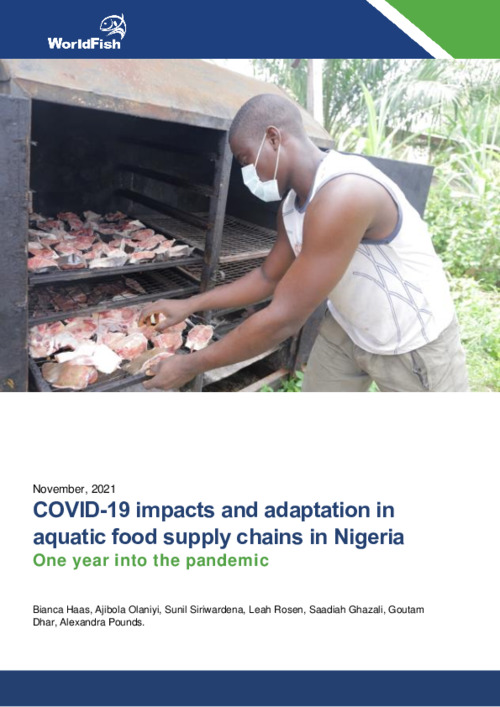COVID-19 impacts and adaptation in aquatic food supply chains in Nigeria - One year into the pandemic

In 2020, we conducted a bi-weekly phone survey, covering the period from February to November, with 86 fish supply chain actors in Nigeria, to assess the impact of COVID-19 on the availability and price of aquatic foods and production inputs (Middleton et al 2020). In 2021, we conducted a follow-up survey, by phone interviews in June recalling activities from March through May. Not all original respondents were available for a follow-up interview, so some new respondents were contacted. The 2021 sample comprised of the following: fish hatcheries (12), fishers (10), traders (7), retailers (9), fish processors (14), feed sellers (pellet) (12), feed mill (4), fish farmers (23).
COVID-19 cases in Nigeria peaked in June 2020, January 2021, and again in August 2021 (Dong et al 2020). The government responded to the pandemic by enforcing mandatory lockdown periods between March and October 2020, followed by relaxation of the restrictions between September and November 2020. Due to rising cases, lockdowns were re-introduced in December 2020, continuing through early 2021. As such, data from 2020 was collected during lockdown periods, whereas data from 2021 was collected in a postlockdown period. Lockdowns included travel bans, which impacted on both import and exports as well as peoples’ ability to travel for work and business purposes.
Permalink
Date Available
Type
Publisher
Countries
Copyright
CC-BY-NC-4.0
Language